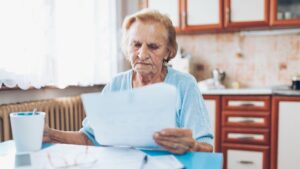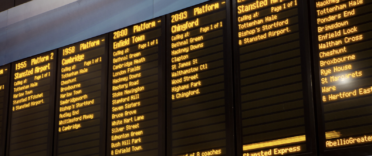
The issue dates back to 1995 when the government's Pensions Act resolved to steadily raise the State Pension age for women to 65 between April 2010 and 2020. This aimed to match the State Pension age for men. Prior to the equalisation, women could receive the State Pension when they turned 60, while men had to wait until they were 65. As a result of subsequent rule changes to bring the rise forward by two years, the women's State Pension age started rising in 2010 and reached 65 in 2018. However, many women were unaware that their State Pension age had gone up, some until after they left their jobs and retired.
The PHSO found that as a result of the DWP's failings, the women affected had suffered certain injustices. Because the DWP failed to communicate State Pension age changes adequately, it found women's sense of personal autonomy and control over their finances was negatively affected. In addition, they were unable to make informed decisions about certain aspects of their lives.
What remedies did the Ombudsman recommend?
Given the Ombudsman's findings, a range of remedies were recommended. Notably, it was suggested that financial compensation between £1,000 to £2,950 per affected woman could be appropriate. This range is considered level 4 compensation on the severity of injustice scale used by the PHSO to award financial compensation. It is offered where there has been significant or lasting injustice that has affected a person's ability to lead a normal life. This financial compensation recommendation falls short of the expectations set out by the Woman Against State Pension Inequality (Waspi) campaign.
What do Waspi campaigners want?
Waspi campaigners want "a lump sum in compensation for the lack of notice received" that is in line with the degree of loss suffered as a result of the maladministration.
A January 2022 All-Party Parliamentary Group recommended that each affected Waspi woman should be compensated at least £10,000. This is in line with previous compensation requests by the Waspi campaign and would be a level 6 on the severity of injustice scale. This level of compensation is recommended only for the most serious cases the PHSO sees where people have suffered "profound, devastating, or irreversible" impacts.
There are approximately 3.6 million women affected by the DWP's maladministration who could be owed compensation. Paying every woman at least £10,000 in compensation would cost the government approximately £36 billion.
What happened after the announcement?
The DWP has since issued a statement to address the report's publication. Mel Stride, The Secretary of State for Work and Pensions, said: "We will consider the Ombudsman’s report and respond in due course, having cooperated fully throughout this investigation. Ministers intend to come before the House in due course.
"The government has always been committed to supporting all pensioners in a sustainable way that gives them a dignified retirement whilst also being fair to them and taxpayers."
In an opinion piece published on the inews website, Waspi chair Angela Madden said: "The government has long hoped that we would simply go away. But we are going nowhere, and we will not rest until justice is done."
She added that Waspi supporters would be watching "carefully" to see how different parties respond to the report during the lead up to the general election.
What does the ruling mean for Waspi women?
Women born between April 1950 and April 1960 could be owed compensation under the report's recommendations, but that doesn't mean it is guaranteed. While the Ombudsman can make recommendations on how to put things right, it has no legal power to make organisations follow its recommendations. Within the report, the Ombudsman noted that the DWP has indicated that it will not follow the Ombudsman's recommendations regardless of the report's findings.
The report noted: "What DWP has told us during this investigation leads us to strongly doubt it will provide a remedy. Complainants have also told us they doubt DWP’s ability or intent to provide a remedy. Given the scale of the impact of DWP’s maladministration, and the urgent need for a remedy, we are taking the rare but necessary step of asking Parliament to intervene."
Waspi chair Angela Madden commented: "The DWP's refusal to accept the clear conclusions of this five year investigation is simply unbelievable. One of the affected women is dying every 12 minutes, and we just cannot afford to wait any longer.
"We are now looking for those who have supported us over the years to put their money where their mouth is and back us on a proper compensation package."
The Ombudsman will now present the report to Parliament with what it believes to be an appropriate remedy.
In practice, there's a long way to go still. If the government does commit to compensating impacted women the recommended amounts, this would involve spending up to £10.5 billion and would still fall short of what the Waspi campaigners request.
What to do next if you are impacted
If you are a woman born between April 6, 1950 and April 6, 1960, you could be due compensation in the future.
This recent report is a step in the right direction towards potential financial compensation. However, the report is yet to be reviewed by parliament and the DWP has issued what amounts to a holding statement after the Ombudsman said it is unlikely compensation would be forthcoming regardless of the report's findings.
As such, there is no compensation to claim yet. It's also too early to tell what this will look like, if it does eventually materialise.
It looks like the battle will continue to rage on in the lead up to the general election, with Waspi members waiting to see how political parties will respond to the report before deciding who to back.
What to do next if you're not impacted
The most recent Ombudsman report has brought to light that how the government shares information can be ineffective. If you are concerned about your own State Pension and how it might change, there are things you can do to keep yourself informed.
For example, you can check your State Pension age via the government website. All you need to do is input your date of birth to get an estimate based on the current rules. As this is not static, it's worth checking every few years to keep up to date with any changes that are likely to impact you and plan accordingly.
You can also check your State Pension forecast via the same website. It'll tell you how much State Pension you're likely to receive, when you're likely to get it, and how you can go about increasing it if you're not on track to qualify for the full amount. This is a more comprehensive forecast, but as it's personalised to you and requires sensitive data, you'll need to register for Government Gateway before you can access it.
We also have more information on the State Pension in our articles:




